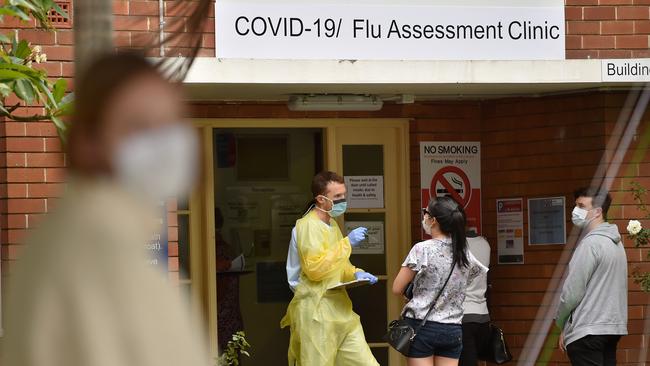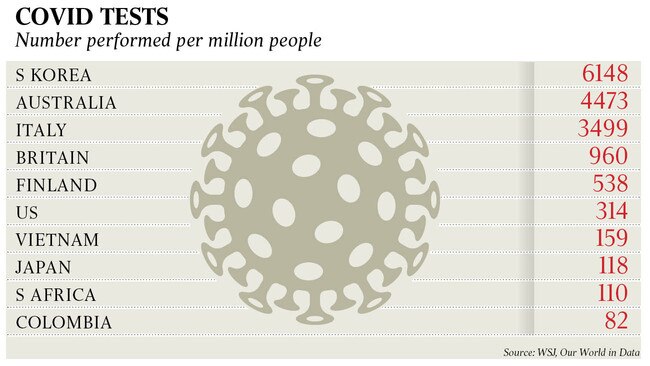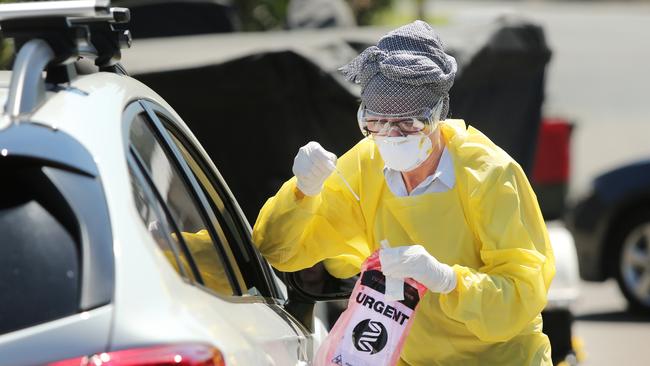Coronavirus: on-the-spot tests to speed diagnoses
Australia’s coronavirus testing rate is set to ‘ramp up’ when 1.5 million on-the-spot testing kits arrive in the coming days.

Australia’s coronavirus testing rate is set to “ramp up” when 1.5 million on-the-spot testing kits arrive and are distributed around the country in coming days.
The first point-of-care test to be given Therapeutic Goods Administration approval is being supplied by advanced diagnostics company Endo X, with 500,000 of the kits set to arrive in Australia next week.
The pinprick blood-test kits not only detect whether someone is actively infected with COVID-19 but also whether they have been exposed to it in the past and have developed immunity.
That will be crucial for health workers, with those who have immunity able to return to work without restriction and work freely with COVID-19 patients.

The director of Endo X, David Badov, said the pinprick antibody test was designed to complement the current testing method, which involves collecting a swab sample and then amplifying genetic material to enable virus detection.
“All this test requires is a drop of blood on a slide and that will tell you in 15 minutes whether you are acutely infected with the virus, or whether you are immune to the virus,” Dr Badov said.
“As this pandemic evolves, this kind of testing will become more and more important because once you have immunity, you can safely return to work. This test will also shorten the quarantine period after infection because as soon as you have antibody positivity, you can return back to work.”

The rapid antibody test will also assist in identifying cases of COVID-19 in the community that are asymptomatic — estimated at 30 per cent of infections.
“The next step with this pandemic will be to establish what is the actual prevalence within the Australian community and once again this is where this test will be very useful. What we need to do because we have a shortage of tests (is) expand the testing.”
The point-of-care antibody tests are significantly less expensive than current DNA tests.
The tests will need to be carried out by a doctor or nurse, and can only diagnose someone who has been infected for a few days and has begun to show symptoms.
“Australia has one of the highest testing rates per head of population in countries right around the world. So even though like many countries around the world we had a limitation on the number of tests which have been able to be carried out up until now … that is about to rapidly ramp up,” federal health adviser Michael Kidd said.
The Doherty Institute is also developing a rapid “one-step” nucleic acid detection test, which combines the current extraction of the virus from the patient sample and detection step into one.






To join the conversation, please log in. Don't have an account? Register
Join the conversation, you are commenting as Logout